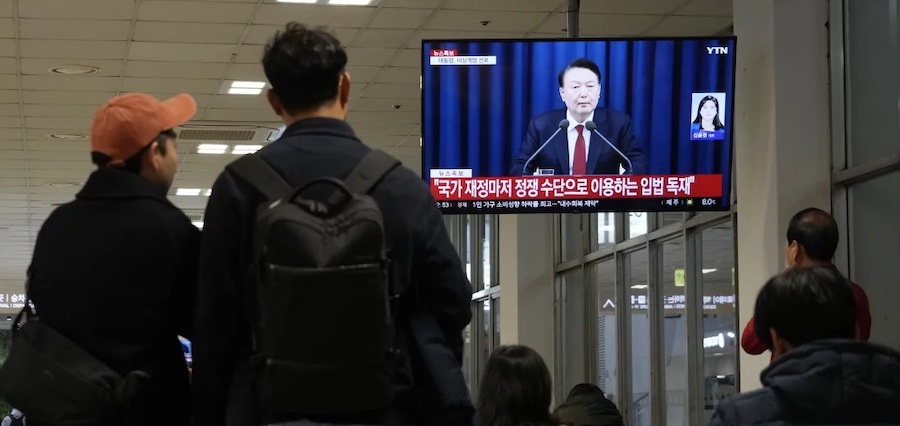SEOUL, SOUTH KOREA. (THECOUNT) — President Yoon Suk Yeol shocked the nation Tuesday night by declaring “emergency martial law” in a televised address, citing what he described as anti-state activities orchestrated by the opposition. Yoon accused his political opponents of paralyzing the government and being sympathetic to North Korea, vowing to eradicate what he referred to as “pro-North Korean forces” and safeguard South Korea’s constitutional democratic order.
“Through this martial law, I will rebuild and protect the free Republic of Korea, which is falling into the depths of national ruin,” Yoon stated emphatically, though he did not elaborate on the specific measures that would accompany the enforcement of martial law.
|
Advertisement |
A Divided Nation
The declaration comes amid escalating tensions between Yoon’s conservative administration and the liberal opposition People Power Party, which dominates the National Assembly. The two factions have been deadlocked over the upcoming year’s national budget, further exacerbating an already fraught political climate.
Yoon, who assumed office in 2022, has faced mounting challenges, including plummeting approval ratings and several high-profile scandals. Controversies involving his administration—and even his wife—have eroded public trust, adding to the tension surrounding his dramatic announcement.
Calls for Patience and Unity
During his address, Yoon urged South Koreans to endure “some inconveniences” as the government takes action against what he called anti-state forces. “I ask for your faith and tolerance as we eliminate these forces as quickly as possible and normalize the country,” he implored.
Critics, however, have raised alarms over the lack of clarity regarding the scope and enforcement of the martial law declaration. Opposition leaders have yet to respond in detail but are expected to fiercely contest the move, potentially setting the stage for further political and social unrest.
A Nation on Edge
The sudden declaration of martial law has left many South Koreans grappling with uncertainty. Questions loom about how this move will impact civil liberties, economic stability, and South Korea’s international standing. Observers also point to Yoon’s accusations against the opposition as potentially deepening the divide within the country.
Analysts are closely watching the situation, with many noting that this is an unprecedented move in the country’s recent democratic history. How Yoon navigates this critical period may determine the trajectory of his presidency and the nation’s democratic institutions.
Additional updates are expected as the situation unfolds, and South Koreans await clarification on the government’s next steps under the martial law directive.
Seoul, the capital of South Korea, is a huge metropolis where modern skyscrapers, high-tech subways and pop culture meet Buddhist temples, palaces and street markets. Notable attractions include futuristic Dongdaemun Design Plaza, a convention hall with curving architecture and a rooftop park; Gyeongbokgung Palace, which once had more than 7,000 rooms; and Jogyesa Temple, site of ancient locust and pine trees.
DEVELOPING::

